TAPACHULA: When migrants arrive at the main crossing point into southern Mexico – a steamy city with no job opportunities, teeming with foreigners eager to continue their journey north – they quickly learn that the only way to cut through the red tape and expedite what can be a months-long process is to pay someone.
As the number of people entering Mexico has increased, so has the country's network of lawyers, fixers, and middlemen. Opportunists are ready at every step of a complicated process to provide documents or counsel to migrants who can afford to speed up the system — and who don't want to risk their lives packed in a truck for a dangerous border crossing.
In nearly two dozen interviews with The Associated Press, migrants, officials and those in the business described a network operating at the limit of legality, cooperating with — and sometimes bribing — bureaucrats in Mexico`s immigration sector, where corruption is deeply ingrained, and at times working directly with smugglers.
Fixers have always found a business with those passing through the country. The result is a booming business that often preys on a population of migrants who are largely poor, desperate and unable to turn elsewhere.
Legal papers, freedom from detention, transit permits, temporary visas: All are available for a price via the network. But even though the documents are legal and the cost can be several hundred dollars or more, migrants are at risk of arrest or return to their entry point as they make their way through the country, thanks to inconsistent policy enforcement and corrupt officials at checkpoints.
This story is part of the ongoing Associated Press series “Migration Inc,” which investigates individuals and companies that profit from the movement of people who flee violence and civil strife in their homelands.
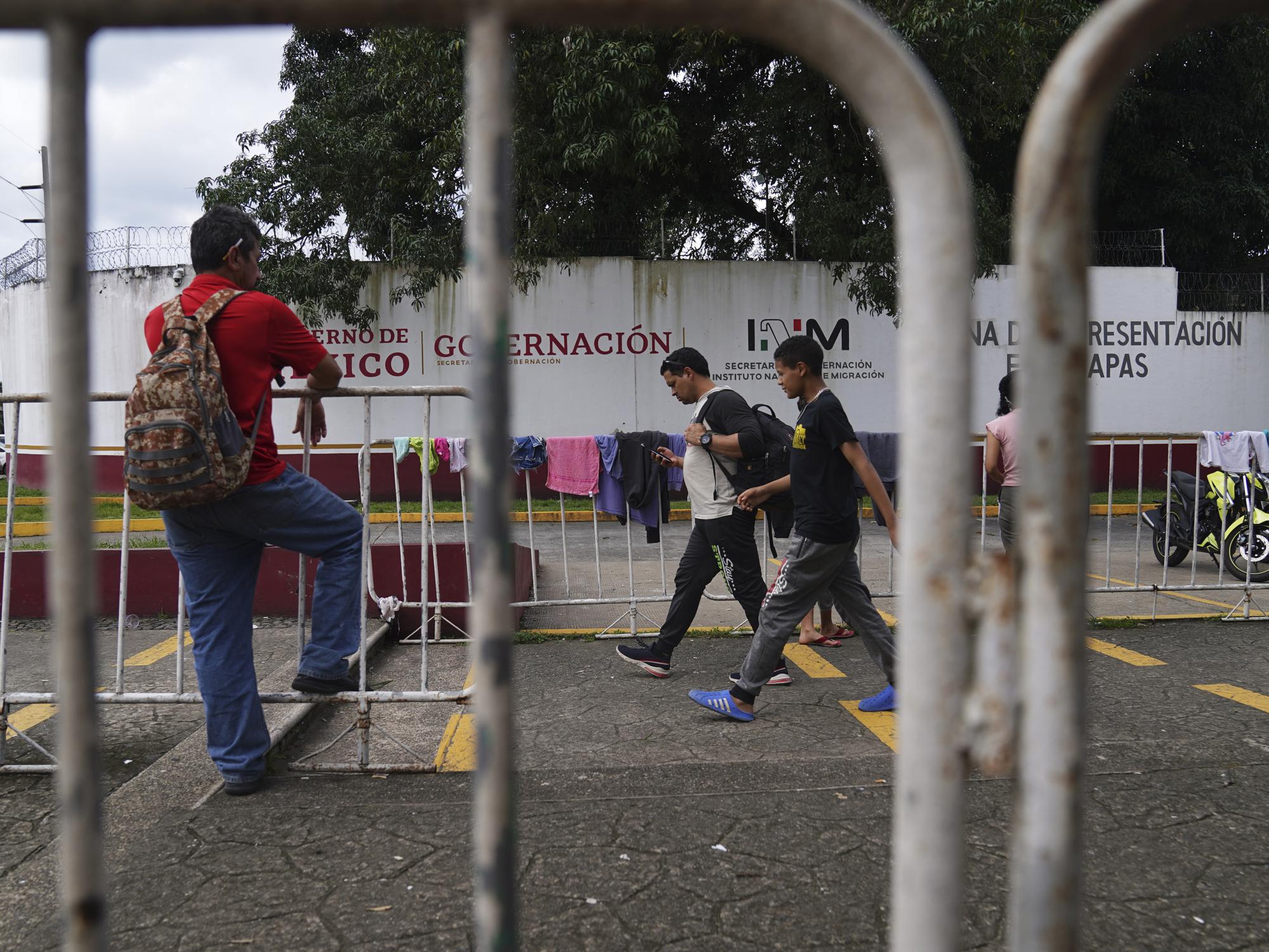
Crossing through Mexico — a country plagued by drug cartels that also make millions from migrant smuggling — has long been a risk.
That formal process usually involved requesting asylum, even when people simply wanted documents to move legally to the U.S. border.
In the fiscal year that ended Sept. 30, U.S. authorities apprehended people crossing the southwest border 2.38 million times.
But with the influx of migrant arrivals, it takes months just to get an appointment to begin the process. Amid the waits and tension, it’s tempting to pay fixers and lawyers.
With more people has come more waiting, desperation and protests. In response, more than a year ago, the Mexican government loosened criteria for some temporary and transit permits, especially for migrants from countries where it would be difficult for Mexico to return them. Amid the waits and tension, it`s tempting to pay fixers and lawyers.
In the south, migrants going to fixers can generally choose from different packages — transit permits, temporary visas — promoted on social media and adapted to various scenarios and budgets. Migrants rarely report questionable practices. Most assume their payments and time are part of the price of getting to the U.S. Even when corruption is reported, authorities seldom take action, citing a lack of evidence. In December 2018, when President Andrés Manuel López Obrador took office, he said fighting corruption was a top priority.
The National Immigration Institute did not respond to multiple requests for comment on its anti-corruption efforts, and officials declined to be interviewed. The agency announced earlier this month that it has followed up on recommendations made by internal control bodies as part of its commitment to combating corruption. In response, the agency said some officers were harassed and threatened.
Monica Vazquez, a public defender from Puebla, central Mexico, said, "It's never over because there are so many high-ranking officials with big money involved." She and her colleagues think the situation is getting worse.
On a fall day in Tapachula, at the border with Guatemala, 100 migrants lined up outside immigration offices, hoping for documents to cross Mexico. They soon learn the free, government-sanctioned process can take months. Just a few blocks away, the same documents can be delivered quickly, but at a cost.
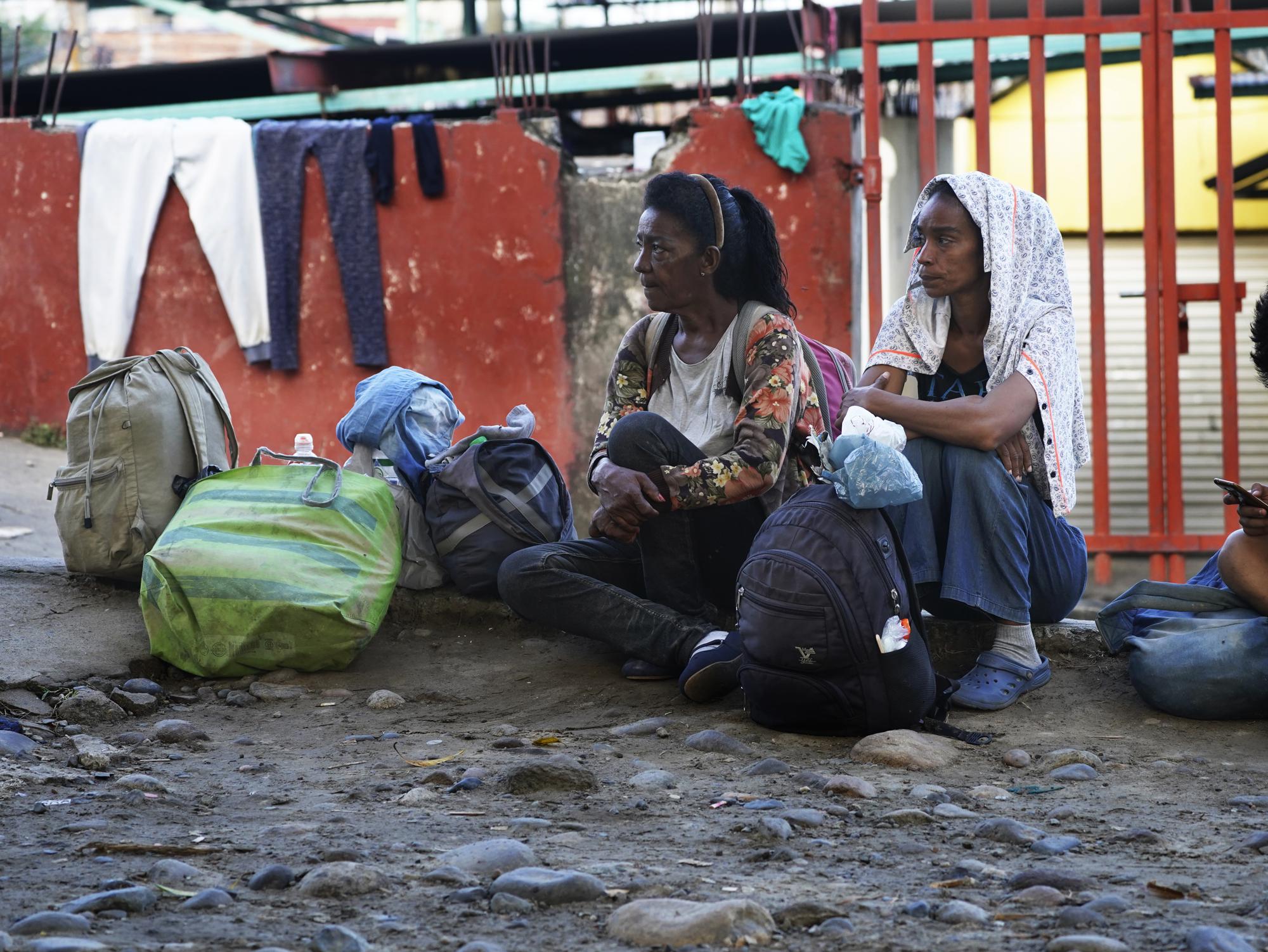
For one Dominican man, it took three days and $1,700 to get a permit to travel through Mexico, he told AP. He said a lawyer brought the government-issued transit document to a house where a smuggler took him after he crossed into Mexico. While waiting for the lawyer, he said he suddenly feared he`d been kidnapped — nobody told him how long it would take to get the documents and he was too afraid to ask. The man spoke with AP several times before leaving Tapachula, on condition of anonymity to remain safe as he travelled north.
I charge because the law allows me to.”
She said she hadn`t received privileges or special treatment from immigration authorities. Asked if she`d ever paid an official in her job, Espinoza said: “It`s not necessary to pay an immigration official.
Through the intervention of United Nations officials who visited, he contacted public defender Vázquez, who helped get him released. The Federal Institute of Public Defenders has long complained about the way immigration agents in Puebla work. They have alleged in complaints to the National Human Rights Commission that immigration officials are working in collusion with a private law firm at the expense of migrants` rights.
A few days later, he was arrested, he said, as immigration agents boarded the bus he and other migrants were travelling on when it stopped at a gas station in Puebla. He described the agents tearing up safe-passage documents.
A 37-year-old Cuban man who spoke on condition of anonymity to protect himself and others who may be travelling through Mexico described buying his documents last year in Tapachula for $1,800, including transportation to the U.S. border.
Even when migrants buy travel documents or visas, they aren`t guaranteed safe transit. The papers may be disregarded or destroyed by the very agency that issued them.
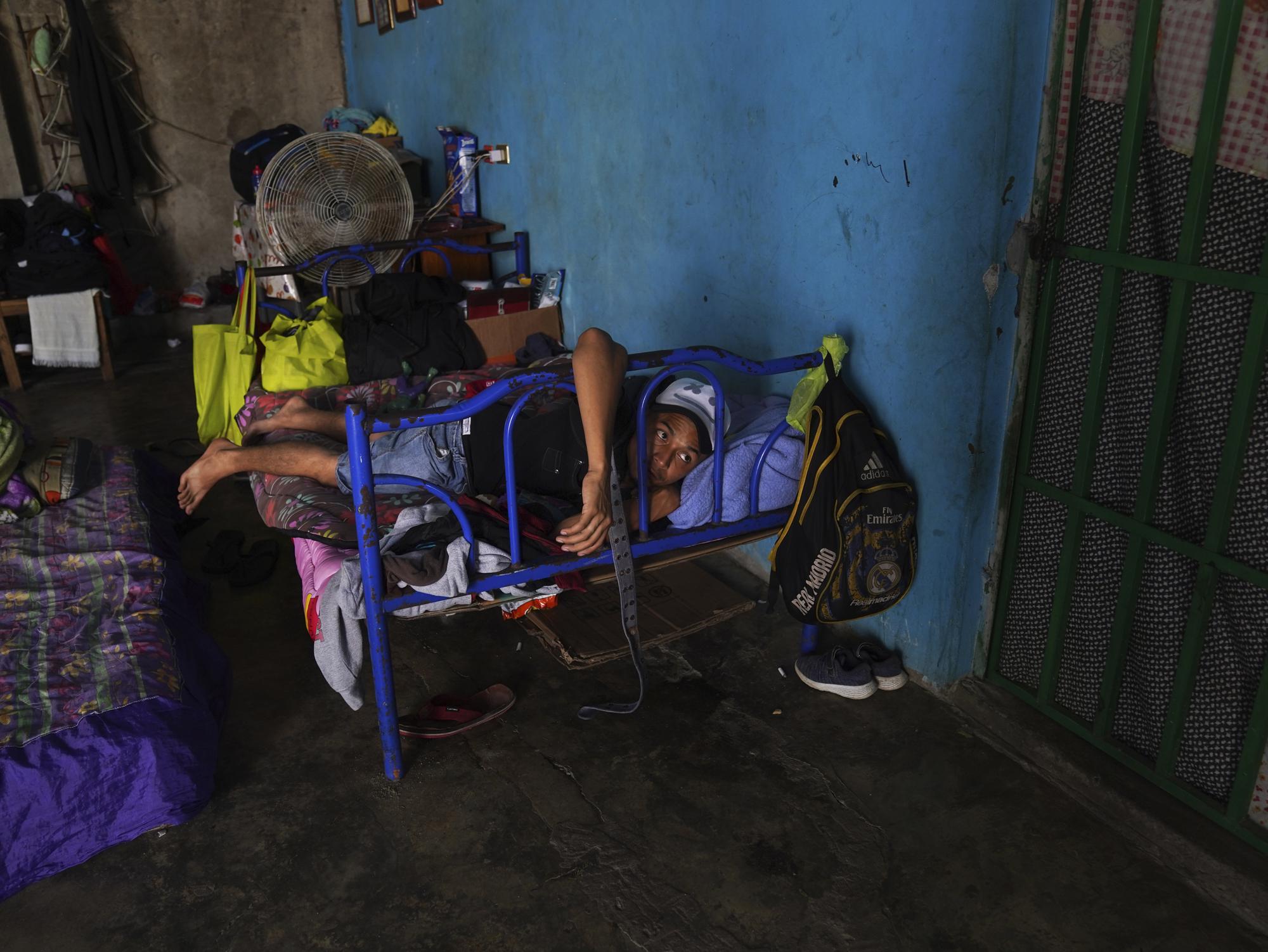
Ramírez said anyone else implicated will be fired. “Zero tolerance,” he said in an interview with AP.
Last April, the sale of documents inside the COMAR office in Tapachula became the subject of an investigation when two complaints were filed with the Chiapas state prosecutor`s office. Four officials left the agency; the investigation is ongoing.
Tonatiuh Guillen, who led the immigration agency at the beginning of President Andrés Manuel López Obrador`s term, said in an interview with AP that he asked for the resignation of some 400 officials suspected of wrongdoing. Of more than 5,000 internal investigations opened since 2019, five made it to prosecutors by mid-2022, data obtained through AP`s records requests show. In December, the federal government in its freedom of information portal listed 16 officials, with no other details. When the immigration agency was asked directly, via freedom of information requests, it said it was just one.
Generally, when there`s an allegation of corruption, immigration officials demand that employee resignation or simply do not renew the contract, since most are temporary workers, according to a federal official who insisted upon anonymity because the official was not authorized to speak to AP.
He said he was surprised, so he asked for details of the crimes and their situations. Asked by AP, the Chiapas state prosecutor`s office said one official was dismissed in July and an investigation was recently opened into the sale of crime reports.
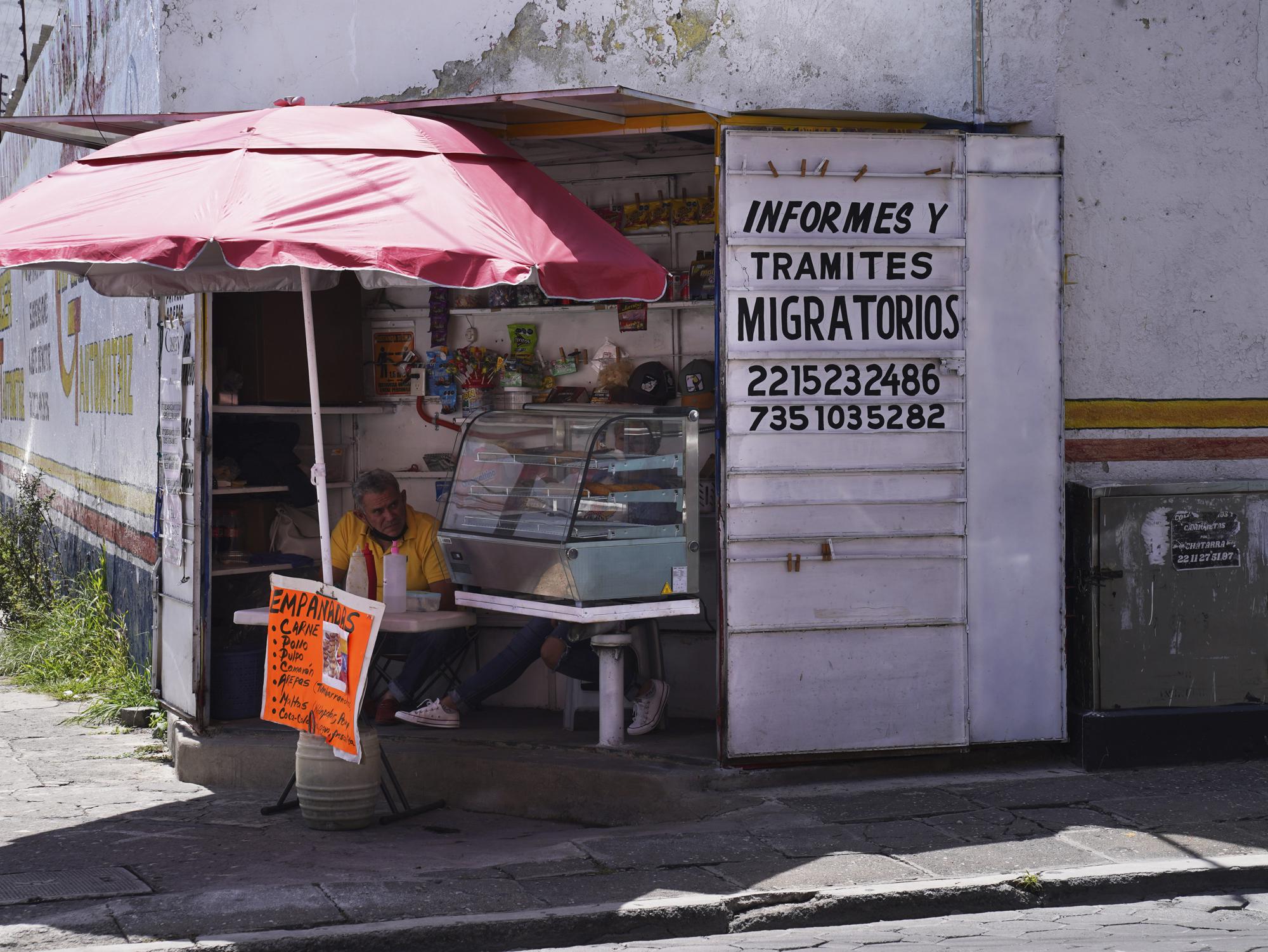
In all of 2021, fewer than 3,000 migrants -- mostly Central Americans -- reported crimes and successfully obtained humanitarian visas in Mexico. Some public defenders and others in Mexico find the increase suspicious and fear some crime reports are being purchased to obtain visas. Juan Carlos Custodio, a public defender in Tapachula, found more than 200 Cubans processing visas as crime victims in immigration offices in nearby Huixtla one September day he dropped by for paperwork.
The lawyer described to AP another way to get migrants legal status in Mexico: buying a crime report from a prosecutor`s office, which can open the door to a humanitarian visa. Any foreigner who has been the victim of a crime is eligible to seek such a visa under Mexican law. But now, reports of crime are up, along with hopes of visas.
The broker who spoke with AP said his contact at the National Immigration Institute is a senior official who always comes through with documents, except when transactions freeze temporarily — often when the agency is in the spotlight or in the middle of political tensions. He told AP he deals mainly with Cubans who spread the word of his services to friends and family.
Much of the money goes toward paying officials at the National Immigration Institute, according to the broker. The immigration agency did not answer requests for comment. In previous statements, it has said officials try to avoid bribery and corruption by installing surveillance cameras.
He and others who travel through the country use “safe-passage” permits — the common term for some temporary documents issued by the Mexican government. In one such message seen by AP, options ranged from $250 paid in Mexican currency for a simple document allowing transit to $1,100 in U.S. money for more sophisticated humanitarian visas, printed with a photo and fingerprint, for temporary legal stays in Mexico. The broker who sent the message guarantees the papers are real government-issued documents, not forgeries.
That former agent spoke anonymously because of fears over safety and retribution, and said legal procedures were violated and requirements skipped to release some migrants who paid quickly. That former agent also insisted on anonymity because of fears over safety and retribution.
Espinoza reiterated to AP that the allegations of Vázquez, her colleagues and others are false: “If the Institute of Public Defenders doesn`t know how to do its job on immigration issues, it`s not the fault of private lawyers,” she said. The federal immigration institution also denounced Vázquez and said she damaged the agency by filing an injunction for 300 migrants.
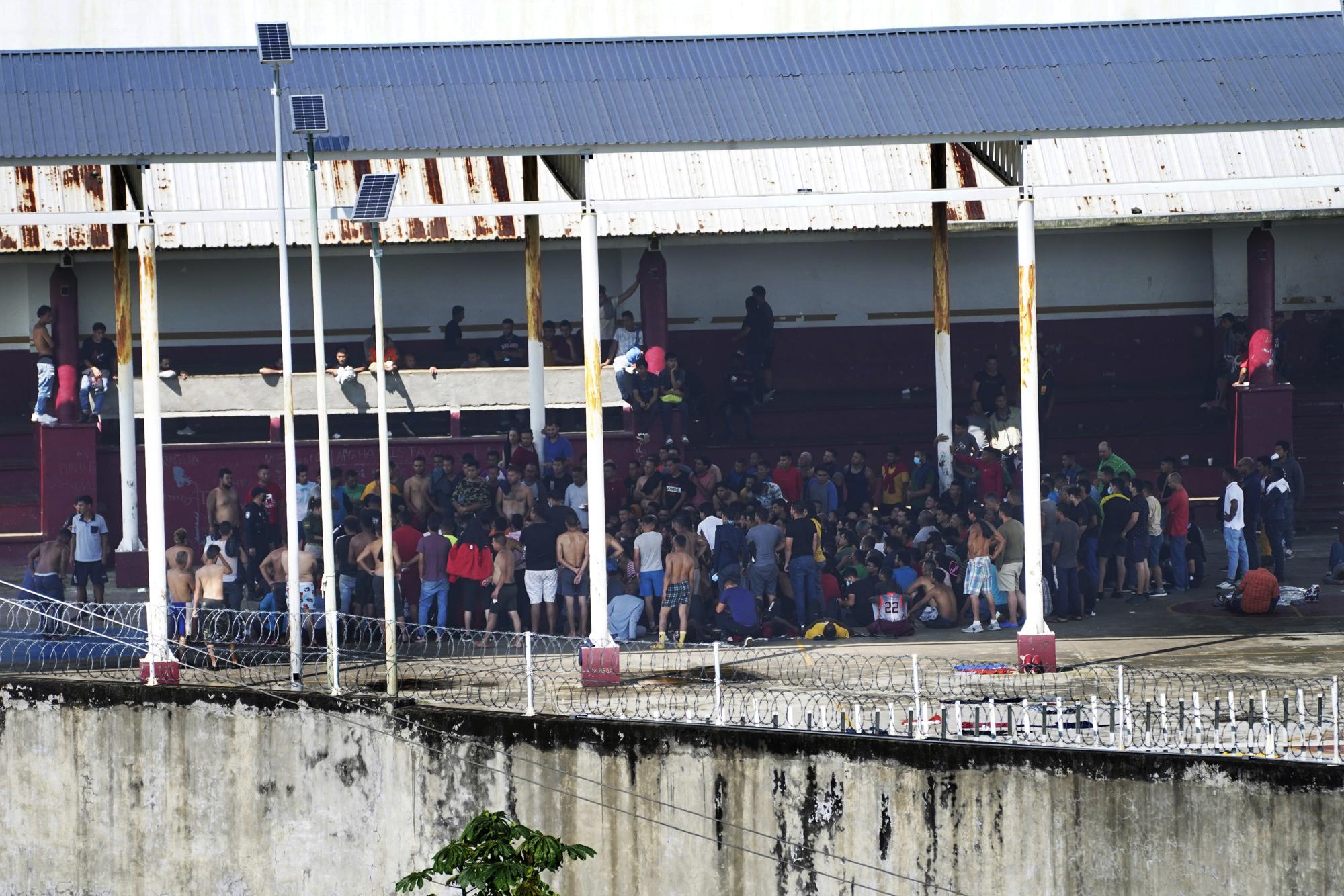
She said that when detainees opt for free representation from public defenders, they`re sometimes punished by immigration authorities — forced to go without food or showers. From 2020 to 2021, when the public defender`s office began denouncing irregularities and privileges linked to Espinoza`s firm, retired Gen. José Luis Chávez Aldana was in charge of the Puebla immigration office.
David Méndez, who was appointed head of the immigration office in Puebla at the beginning of 2022, acknowledged irregularities when he started his role but said he did not file complaints because he didn`t have proof. Vázquez said she has filed three complaints with the National Human Rights Commission denouncing the practices in Puebla, the last one in August 2022. The commission told AP that two complaints have been closed and one remains open, but it would not explain its findings. Vázquez said she has not been informed, either.
Back at Mexico`s border with Guatemala, more migrants arrive daily. Then, they turn themselves over to authorities, with the hopes of obtaining safe passage documents. One October day south of Tapachula, on the bank of the Suchiate River separating Mexico from Guatemala, immigration agents registered some 200 migrants, mostly Venezuelans, at one entry point.
It`s not clear why authorities chose an out-of-the-way place for what became a massive migrant camp. By mid-December, the immigration agency suddenly announced the closing of the camp with no explanation. Migrants vanished from the town in a matter of days. While the camp was open, some people said they spent days in detention in Tapachula before getting there; others said they were released immediately.
For Luilly Ismael Batista, it was the latter. The Dominican man said a friend recommended the lawyer who got him freed after nine days.
“A friend went out with my credential; the lawyer called me on the loudspeaker,” he said. The agents “let me go, but I had to give my passport and credentials to the lawyer as a guarantee to pay him when I was free.”
Later, he paid $300 for transportation and a guide to bypass about 10 immigration checkpoints on the way from Tapachula to San Pedro Tapanatepec. “They moved us in all kinds of vehicles, vans, cabs, motorcycles,” Batista said.
He said he got on a bus heading north with his transit permit and no money left. He didn’t know how he would reach the U.S. border.
“I will sell my phone, I will sell my watch, I will sell whatever,” he told AP. “God will help us, he will bless us, and we will continue to move forward.”
It ended up being his last message to AP. His cellphone number no longer works.
Source: APNews